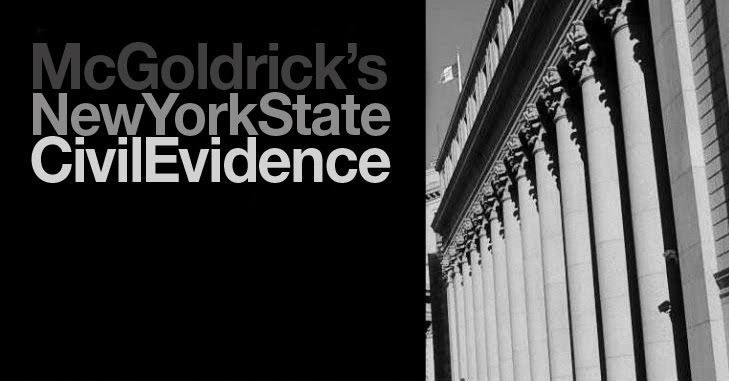The defendant appealed a denial of motion for change of venue. Under CPLR 503(a), the proper venue was based upon the parties' residence and not where the cause of action arose.
At a prior deposition the plaintiff expressed uncertainty about the exact date on which she had moved from Bronx County to New Jersey, but stated that she thought it to have been in November of 2006, on a Friday, and in the third week of that month.
Q. Do you know the day of the week, the day in November, the 1st, 2nd[,] 3rd?
A. I think middle week.
Q. I'm talking about the day?
A. The day. Oh, I think the third week.
Q. Do you know the specific day?
A. Friday.
[Plaintiff's counsel]: Do you know if it was the 25th, 26th, 20th?
A. I think that was the 18th or so?
In the motion under CPLR 503(a), the plaintiff's subsequent affidavit testimony was that she had moved on the Friday after Thanksgiving. This was relevant because the action had been commenced on November 22, 2006.The motion court found that because the plaintiff's affidavit contradicted her earlier deposition testimony that she had moved prior to November 22, 2006, it was insufficient as proof of residence.
The First Department (including McGuire, J. in dissent) held that the deposition testimony about the date was an admission. The majority referred to FRE 801(d)(2)(B) which relates to non hearsay statements of a party-opponent:
FRE 802(d)(2)(B)
A statement is not hearsay if--
(2)Admission by party-opponent. The statement is offered against a party and is
(B) a statement of which the party has manifested an adoption or belief in its truth
and held:
Inasmuch as the phrase "I think" is an expression of belief, we conclude that such an expression can be an admission.
The binding effect of such an admission is illustrated by this Court's recent decision in McNeill v LaSalle Partners (52 AD3d 407 [2008]), which reads, in part, as follows:
"The trial court also erred in precluding appellants from questioning plaintiff on cross-examination about his deposition testimony that the liquid on which he slipped might have been encapsulate' (a milky liquid used in the abatement of asbestos). . . At his deposition, plaintiff testified that he thought the liquid on which he slipped could be some kind of encapsulate, but I wasn't sure.' At trial, however, plaintiff testified that he had no idea what kind of liquid had caused his accident. Under these circumstances, appellants were entitled to question plaintiff about the deposition testimony in question, both for purposes of impeachment and to use the prior inconsistent testimony as evidence-in-chief that the liquid was encapsulate" (id. at 410 [emphasis added]).
McGuire J in dissent held that the plaintiff's concession in her deposition testimony, while a judicial admission, was merely an informal one, an incidental admission and not conclusive:
The crucial point is that a prior factual assertion that is tentative is not contradicted by a later statement that is definite; rather, the uncertain statement is clarified. We should not deprive plaintiff of her statutory right to designate the Bronx as the place of trial by imputing to her a contradiction where only a clarification can be found.
...informal judicial admissions are facts incidentally admitted during the course of a judicial proceeding (id. § 8-219, at 529). An informal judicial admission is not conclusive of the fact "admitted," but rather is merely some evidence of that fact (People v Brown, 98 NY2d at 232; People v Rivera, 45 NY2d 989 [1978]; Prince, Richardson On Evidence § 8-219, at 530). A classic example of an informal judicial admission is a statement made by a party at a deposition (Prince, Richardson On Evidence, § 8-219, at 530; see also Matter of Union Idemn. Ins. Co. of N.Y. v American Centennial Ins. Co., 89 NY2d 94, 103 [1996] [statement made in affidavit]; People v Rivera, supra [statement made in affidavit]; Baje Realty Corp. v Cutler, 32 AD3d 307 [2006] [statement made in affidavit]).
...Here, plaintiff did not concede that she moved to New Jersey on a Friday during the third week of November 2006, on what she thought was November 18th. Rather, she testified that she "thought" and "believe[d]" that she moved to New Jersey at that time, an incidental admission. Given the absence of a concession by plaintiff — the sine qua non of a formal judicial admission — the majority errs in according plaintiff's informal judicial admission conclusive effect.
In relation to the plaintiff's subsequent affidavit testimony, the majority specifically held:
Unquestionably an affidavit tailored to avoid the consequences of a deposition lacks evidentiary value (see Blackmon v Dinstuhl, 27 AD3d 241, 242 [2006]). For example, in Concepcion v Walsh (38 AD3d 317, 318 [2007]) we stated that: "[w]hile plaintiff's mother's affidavit asserts that there was peeling or chipping paint, her deposition testimony was that she did not know; accordingly, her affidavit lacks evidentiary value." Since plaintiff failed to submit documentary evidence (other than her own self-serving statement) supporting her claim that she resided in the Bronx when she commenced this action, and since this case does not involve conflicting affidavits, there is no need to hold a hearing as suggested by plaintiff...
In this instance, the distinction the dissent draws between formal and informal admissions is of no moment. This is because plaintiff's deposition constituted the only evidence of plaintiff's place of residence albeit "some evidence" of same.

